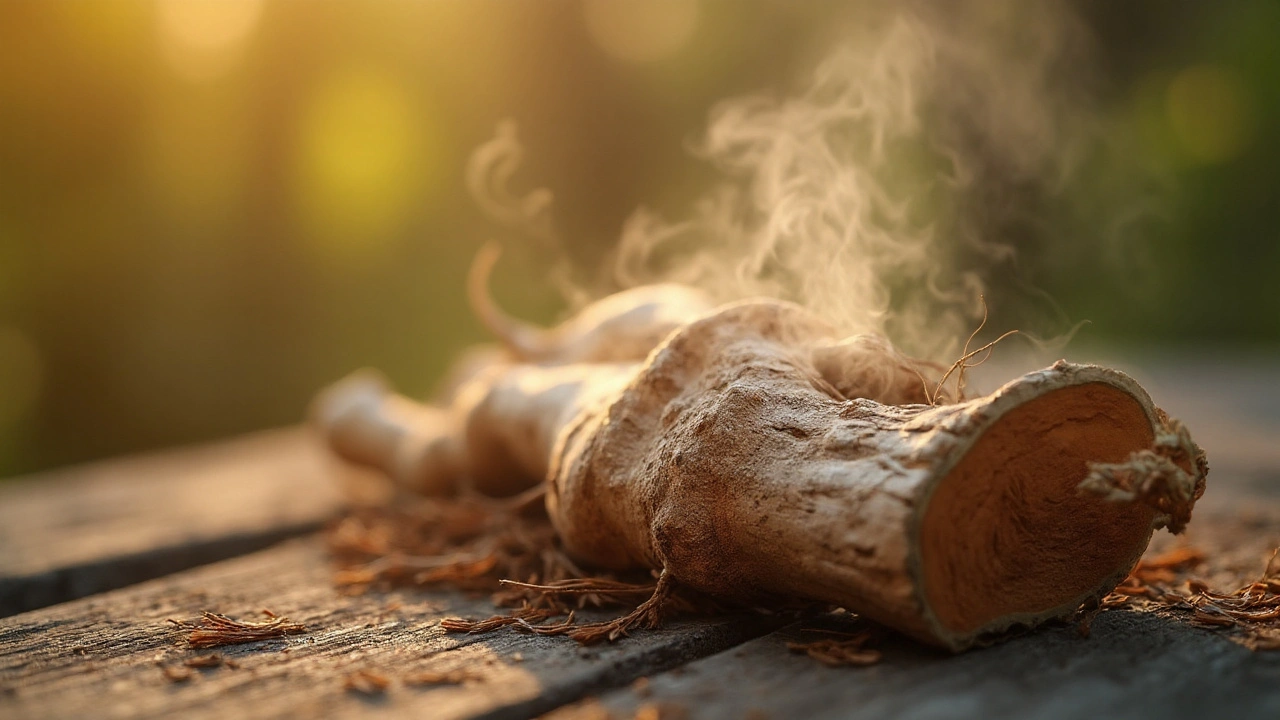Sep, 23 2025, 7 Comments
Senega: The Herbal Secret to Balanced Health & Respiratory Wellness
Discover how Senega, a traditional herbal root, can boost respiratory health, support immunity, and act as an adaptogen for a balanced lifestyle.
Read MoreIf you’re tired of reaching for over‑the‑counter cough syrups, you’ll be glad to know that lots of everyday herbs can soothe a scratchy throat, clear congestion, and make breathing feel easier. The best part? Most of these plants are easy to find in grocery stores or health shops, and they work without a prescription.
Herbs have been used for centuries because they contain natural compounds that act like mild bronchodilators, anti‑inflammatories, and expectorants. Unlike strong pharmaceuticals, they usually cause fewer side effects, especially when you stick to recommended doses. They also give you extra benefits – think antioxidants from ginger or vitamin C from elderberry – that support overall immunity.
Eucalyptus: The sharp, menthol‑like scent you notice in steam inhalers comes from eucalyptol, a compound that loosens mucus. Add a few drops of eucalyptus oil to hot water, cover your head with a towel, and breathe for 5‑10 minutes. Do this once or twice a day during a cold.
Mullein: This soft‑leaf plant is famous for calming coughs. A simple mullein tea is made by steeping 1‑2 teaspoons of dried leaves in hot water for 10 minutes. Drink two cups daily. If you prefer a syrup, simmer the tea with a splash of honey.
Licorice Root: Licorice has natural expectorant properties that help move mucus out of the lungs. Use a pre‑made licorice tea bag or boil a slice of dried root in water for 10 minutes. Limit use to 2 weeks, because high doses can raise blood pressure.
Ginger: Fresh ginger fights inflammation and can ease a sore throat. Slice 1‑2 inches of ginger, steep in boiling water for 10 minutes, and add honey or lemon. Sip 2‑3 times a day when you feel a tickle.
Peppermint: Peppermint oil contains menthol, which relaxes airway muscles. Brew peppermint tea or add a few drops of food‑grade oil to a diffuser. For a quick throat coat, mix peppermint tea with honey.
Elderberry: Rich in antioxidants, elderberry reduces the severity of viral respiratory infections. Take a teaspoon of elderberry syrup daily during flu season, or brew elderberry tea with a mix of dried berries.
Turmeric: Curcumin in turmeric cuts down inflammation in the airways. Mix half a teaspoon of turmeric powder into warm milk or tea, add black pepper to boost absorption, and drink before bed.
When you combine these herbs, you can customize a routine that fits your symptoms. For example, a morning ginger‑turmeric latte followed by an afternoon eucalyptus steam can keep mucus thin and airways open all day.
Safety first: always check the label for dosage recommendations, especially if you’re pregnant, nursing, or taking prescription meds. Some herbs, like licorice and turmeric at high doses, can interact with blood‑pressure meds or anticoagulants. When in doubt, talk to a pharmacist or your doctor.
Remember, herbal support works best when you pair it with good habits – stay hydrated, avoid smoking, and get plenty of rest. With the right combination of herbs and lifestyle tweaks, you’ll notice clearer breathing without relying on a pharmacy shelf.

Sep, 23 2025, 7 Comments
Discover how Senega, a traditional herbal root, can boost respiratory health, support immunity, and act as an adaptogen for a balanced lifestyle.
Read More